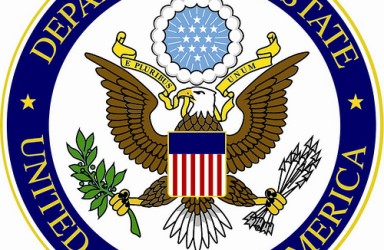BLOOD BROTHERS
To understand American policy better, I suggest you consult a recent, very well written and argued paper by Stephen Peter Rosen of Harvard on why we Americans are less the peace-loving people we often claim to be.
Was the 1920s an ‘era of illusion’?
If Hollywood is to be believed, the first half of the Twentieth-Century was characterised by traditional moral values and romantic ideals. The 1920s were full of happy maidens marrying their long lost loves who had all miraculously survived World War One. But in his book ‘The Twentieth-Century World, An International History’, William R. Keylor refers to the 1920s and an “era of illusion”. The following essay will explore this claim.
The genie may not go back in the bottle
The Iranian leadership understands the dire straits it is in and fully appreciates it must start addressing the rampant inflation, unemployment and the acute need for direct foreign investment in the oil and gas industry. The chances are that the timing is right, for once, to get the current regime to respond honestly and transparently.
Iran has lost the battle of global public opinion
The current political crisis in Iran and the ban on foreign media has proved that modern technology is challenging the monopoly of information management by the state. Today, modern technology is acting as an alternative instrument to expose matters, which the regime prefers to hide from the outside world.
Is the War on Terror Transforming Contemporary Politics?
The War on Terror has changed the world of international politics greatly. Old traditions and customs such as the respect for state sovereignty and the formal equality of states have been shaken. Humanitarian intervention and concerns for human security have been forced into the background, and the human rights and liberty of citizens of all nations are being threatened by the War on Terror.
‘Smart Power’: A change in U.S. diplomacy strategy
Smart power ‘is a concept that underscores the necessity of a strong military, but also invests heavily in alliances, partnerships, and institutions at all levels to expand American influence and establish the legitimacy of American action.’ More plainly, smart power is a combination of both hard and soft power approaches to diplomacy.
Iran shaken by electoral earthquake
This presidential election is like an earthquake which sets new limits for political factionism in Iran and without any doubt, this earthquake will be followed by many aftershocks shaking the ruling structure in the Islamic State.
European Parliament Turns to the Right
The dramatic success of Right parties, particularly Radical Right parties, in the recent European Parliament election indicates that voters are responding to insecurity related to the global economic crisis and immigration. European Parliament elections often act as a referendum on domestic politics, but they are also indicative of trends across Europe.
Culture and Global Environmental Governance: Harnessing the Power of Habits
Cultural dynamics reside at the heart of global environmental governance. The politics of the environment is – alongside questions of distribution/justice and physical sustainability – always a matter of meaning and purpose. And this should not come as a surprise.
The Constitutive Effects for Conflict and Insecurity of the Post-9/11 Discourse on Terrorism
This essay examines the ways in which the post-9/11 discourse on terrorism has prioritised certain interpretations of terrorism, and argues that these carefully chosen frameworks serve to legitimate certain conceptions of conflict and insecurity, whilst marginalising others.




